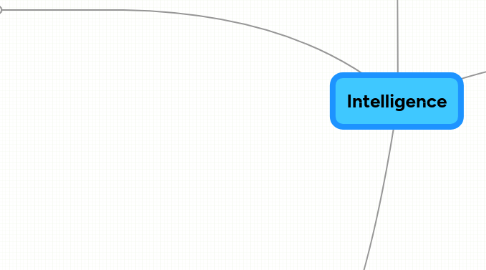
1. Components/Theoritical Perspectives
1.1. Spearman's g
1.1.1. Spearman's concept of g reflects the idea that intelligence may involve a general ability to think and reason about a wide variety of tasks. Some evidence indicates that an ability to process information quickly may be at its core.
1.2. Cattell's Fluid and Crystallized Intelligence
1.2.1. Cattell has found evidence for two distinctly different componens of genral intelligence (g). First, people differ in fluid intelligence (g), their ability to acquire knowledge quicly and thereby to adapt to new situations. Secondly, people differ in crystallized intelligence (g), the knowledge and skills they hve acccumulated from their experiences and schooling.
1.3. Sternberg's Triarchic Theory
1.3.1. Sternberg propses that intelligent behavior inolves an interplay of three factors:
1.3.1.1. 1. Enviornmental contet in which behavior ocurs
1.3.1.2. 2. The way in which one's prior experiences are brought to bear on a particular task
1.3.1.3. 3. The cognitive process required by the task
1.4. Distributed
1.4.1. People tend to behave intelligently when they have the support of the following enviornments:
1.4.1.1. Physical
1.4.1.2. Social
1.4.1.3. Cultural
1.5. Gardner's Multiple Intelligences
1.5.1. Gardner proposes that people have several more specific abilities, or multiple intelligences, that are relatively independent of one another.
1.5.1.1. Linguistic
1.5.1.2. Logical
1.5.1.3. Spatial
1.5.1.4. Musical
1.5.1.5. Bodily-kinesthetic
1.5.1.6. Interpersonal
1.5.1.7. Intrapersonal
1.5.1.8. Naturalist
2. Definition
2.1. The ability to beneift from experiences and thereby modify future behaviors to accomplish new tasks successfully
3. Questions
3.1. 1. Is Gardner the most well known theorist on intelligence?
3.2. 2. Which theorist is the most accurate?
4. Children Acquire Intelligence
4.1. Hereditary Influences
4.1.1. Twin Studies
4.1.2. Adoption Studies
4.2. Environmental Influences
4.2.1. Home Environment
4.2.2. Early Nutrition
4.2.3. Toxic Substances
4.2.4. Early Interventions
4.2.5. Formal Schooling
